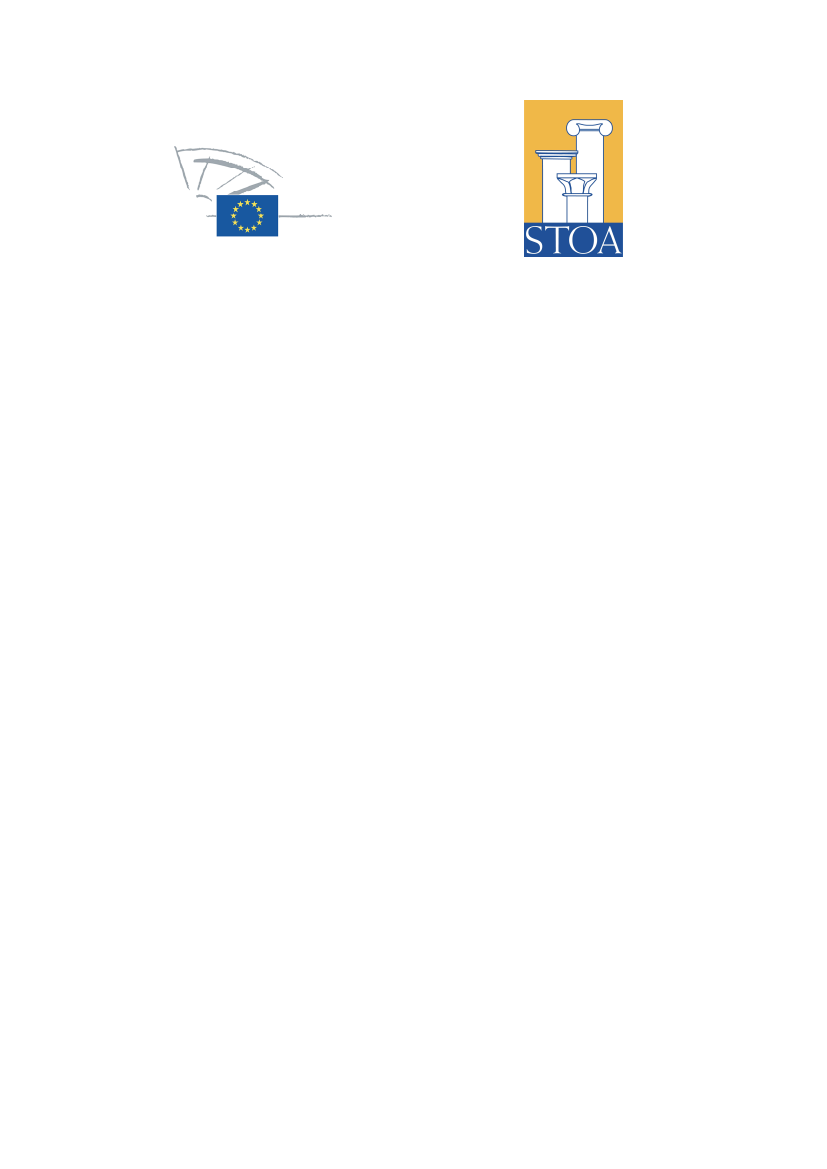Udvalget for Videnskab og Teknologi 2010-11 (1. samling)
UVT Alm.del Bilag 228
Offentligt
Conference on pan-European Parliamentary Technology Assessment -
pEPTA
Date:Venue:7 September 2011, 15:00-18:30European Parliament, Brussels, room A5G-2Technological development plays an important role in the progress of Europeaneconomies: it contributes to increased industrial competitiveness, environmentalsustainability, better health care, improved labour conditions, higher welfare,and solutions for many other societal issues. Based on the idea that technologicaldevelopment requires specific policies, technology assessment started in the late1960s as a tool to inform members of parliaments about possible negative effectsof new technologies. Since then, it has evolved into an instrument that supportsparliamentary decision-making and strategy development on innovation.Recently, the increased involvement of civil society organisations in researchpolicy processes has induced new forms of governance that have also its impacton technology assessment.Parliamentary Technology Assessment
(PTA) in Europe has been initiatedand developed first in northern and western parts of Europe and later also inSouthern Europe. In general PTA activities of today follow proactive approachesthat feed into demand-driven policy-making processes on science, technologyand innovation (STI). Given the urgency of a number of societal challenges(climate change, energy, health, ageing, degenerating cities, etc) and economicchallenges (maintaining and strengthening Europe’s competitive position), STIpolicy-making in parliaments should be informed with intelligence that is gearedto providing solutions to these challenges. PTA may provide importantcontribution to this.Recently a working document was prepared for the European Parliament'sScience and Technology Options Assessment (STOA) Panel that provides anoverview and analysis of the current situation in Europe. The report providesdetailed information (institutional settings, methods, themes) of PTA activities ofthe fourteen PTA organisations in Europe (EPTA full members) and about theimpact of these organisations on parliamentary decision-making. The studyserves as a source of inspiration for developing new PTA initiatives at a pan-European level and as a source of information for new PTA entrants.
1
In order to explore the opportunities, desirability and conditions for a successfulpan-European approach, a conference will be organised that has two importantgoals:inform members of parliament (European, national, regional) and those(preparing to get) involved in PTA activities about PTA in Europe;explore and develop perspectives for pan-European activities.
More specifically, this conference on pan-European PTA (pEPTA) will focus onthe following issues:Motivation for and added value of pan-European approaches and activities inPTA;The roles of stakeholders (EPTA members, new PTA entrants, parliaments)and civil society organisations and their interactions in developing suchapproaches;Conditions and contents (themes/domains) to be addressed in a successfulpan-European PTA approach and the future governance of STI policy basedon this approach.
Draft programme:1. Opening (15:00-15:15) byMr P. Rübig, MEP, STOA Chairman, andMr. C. Tabajdi, MEP, STOA, project supervisor
2. PTA in Europe:Overview of PTA in Europe,by Christien Enzing, co-author of the report‘Parliamentary Assessment in Europe’, Technopolis Group, The Netherlands(15:15-15:35)Examples of PTA in Europe,by representatives of national and regionalPTA organisations. The presentations will show the different models of PTA andcover different European regions, illustrating the diversity in PTA approachesacross Europe:oPaula Tiihonen, Committee Counsel, Committee for the Future,Finland (15:35-15:55)oFrans Brom, Head Technology Assessment, Rathenau Instituut,The Netherlands (15:55-16:15)oJudit Castellà, Member of CAPCIT and Director of Programmes,FCRI, Cataluña, Spain (invited) (16:15-16:35)3. Pan-European approaches and perspectives:Potential and challenges for PTA in policy-making,by Mr. António Correiade Campos, MEP, STOA Vice-Chairman (16:35-16:50)Transnational TA in Europe,Gerhard Banse, Karlsruhe Institute ofTechnology, Institute for Technology Assessment and Systems Analysis (16:50-17:10)Governance of science-in-society,Ulrike Felt, Social Studies of Science,University of Vienna, Austria (invited) (17:10-17:30)2
Panel discussionwith members of parliament (regional / national /European), Lars Klüver (EPTA, PACITA), Gerhard Banse, Ulrike Felt (17:30-18:15)4. Closing by Mr. C. Tabajdi, MEP, STOA (18:15-18:30)Meeting chaired by Mr. C. Tabajdi, MEP, STOACo-chair and facilitator: Prof. dr. Wiebe Bijker, Science and Society, University ofMaastricht, NetherlandsThe pEPTA conference is an initiative of STOA. The conference is organised inclose cooperation with EPTA, the network of European ParliamentaryTechnology Assessment organisations (www.eptanetwork.org).The pEPTA conference will be a first discussion on pan-European PTA, whichwill later be explored further and elaborated on in the PACITA project1. Theoutcome of the STOA project and the pEPTA conference in particular arerelevant for the goals of the PACITA project:Creation of sustainable forms of cooperation, consultation and dialoguebetween different stakeholders involved in (future) PTA activities;Identifying and discussing topics and opportunities for further multi-actorcooperative research.
The second PACITA consortium meeting will take place at the time of the pEPTAconference, on 7-9 September 2011 in Brussels.
The PACITA Mobilisation and Mutual Learning Action Plan (funded by EU FP7) is aimed at increasing the capacity andenhancing the institutional foundation for knowledge-based policy-making on issues involving science, technology andinnovation, mainly based upon the diversity of practices in Parliamentary Technology Assessment (PTA). Most activitieswill be executed by so-called ‘pairing’ partners from European countries, which do not have established PTA.institutionsand partners from countries, which already have PTA-institutions1
3



